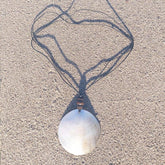What is the difference between vegan and plant based?

You have most likely heard the hype? It’s everywhere, right? Plant-based and vegan diets are becoming popular, thanks to campaigns such as Veganuary – in January, documentaries like ”The Game Changers” and the significant rise in young adults avoiding meat and dairy products as their contribution to keeping the planet a nicer place to live for humans, it’s easy to get the two terms mixed up.
If you are confused and wondering what the difference is between being vegan and being plant-based, you’re not alone. But don’t worry. We at Rainbow Life will endeavour to untangle the terms.

There is a significant rise in eco consciousness around the western world, especially from younger generations. More people are not only choosing a vegan lifestyle because of animal concerns, but because of environmental and health-related worries too. Nowadays, the concept of foregoing all meat and animal by-products from diet to fashion to homeware is becoming more popular than ever before.
Plant-based: what does it mean?
“Plant-based” should not be confusing. It simply refers to diets that consist wholly of plant ingredients.

Confusingly, some people use the term “plant-based” while still allowing a small amount of animal products. Most, however, agree that plant-based diets are free of all animal meat products and by-products. The concept of plant-based diets was originally borne from ethical associations, such as those involved with animal welfare, however being centered around “diet” it does not exclude animal products in other aspects of someone’s lifestyle, such as fashion, beauty, or other consumer goods.
Recently, with many celebrities choosing a plant-based diet and the Netflix film ”The Game Changers” promoting the physiological and mental benefits of eating plant-based, we’ve also seen a rise in the term whole-food plant-based, specifically whole-food plant-based diets. Although some of the claims in this documentary are controversial; specifically cherry picking the science and comparing a healthy plant-based diet only with unhealthy over-processed omnivorous diets, it is still worth a watch.
This diet is one that is centred on whole, unrefined ingredients and foods, low in added sugars and salt. This is a subset of the kind of diet most health practitioners currently recommend. Along with avoiding highly processed foods, such as white sugar, hulled grains and hydrogenated oils, those who follow this type of diet may also choose to eschew meat, dairy and other products derived from animals.
Interestingly, even some vegan products that are overly processed, such as refined vegan biscuits or some plant-based meat alternatives, would be avoided. Those who adopt a whole-food plant-based diet will therefore be eating primarily fruits, vegetables, roots and tubers, whole grains, nuts and seeds and legumes in their whole form.
So what is the difference?
Veganism is more than a diet – it includes one’s lifestyle habits and choices and is more likely to be motivated by ethical considerations such as animal welfare and environmental concerns.
Vegans therefore not only eliminate all animal meats and by-products, but all other products that may contain animal-derived ingredients or involve any form of animal exploitation and cruelty, for example silk and fur. In this sense it is more akin to a religion like Jainism, rather than being totally fact-based.
On the other hand, plant-based is simply a kind of diet that excludes all forms of animal meat and by-products but does not include restrictions in other aspects of someone’s lifestyle, and usually promotes choosing whole plant ingredients over overly processed foods.
Therefore, a plant-based meal may by definition be a vegan-friendly meal, but a person who follows a plant-based diet may not necessarily be following veganism.
Plant-based diet followers may, for instance, wear and use products that have animal derivatives, such as shoes made of leather, or have undergone some form of animal testing such as cosmetics. If this concerns you simply look at the label.
To conclude, there are benefits to be had with both vegan and whole-food plant-based diets when compared to the modern western diet since both tend to promote unprocessed, unrefined foods with plenty of fibre. At the end of the day though, it all comes down to individual choice and preferences.
See our blog Top 5 Vegan Recommendations for useful tips.












Leave a comment
All blog comments are checked prior to publishing